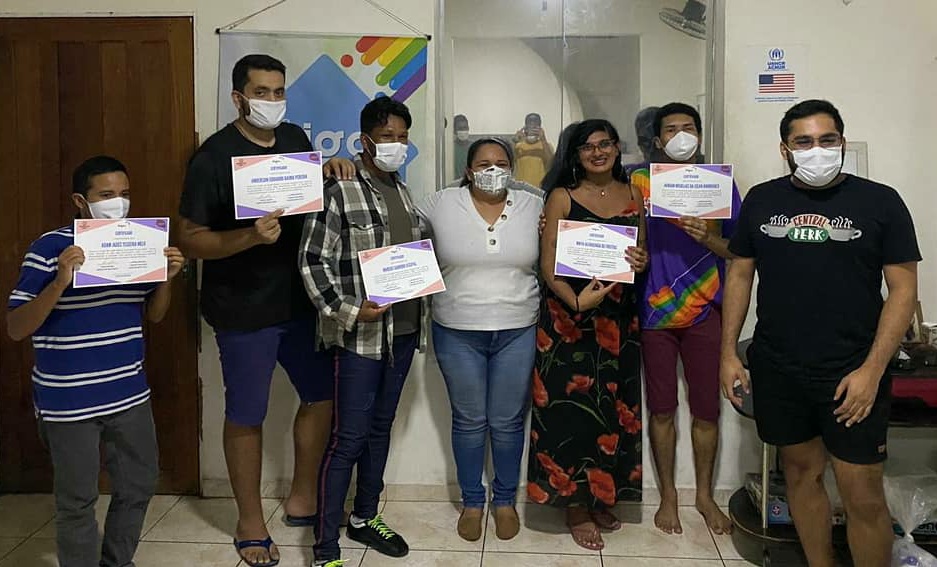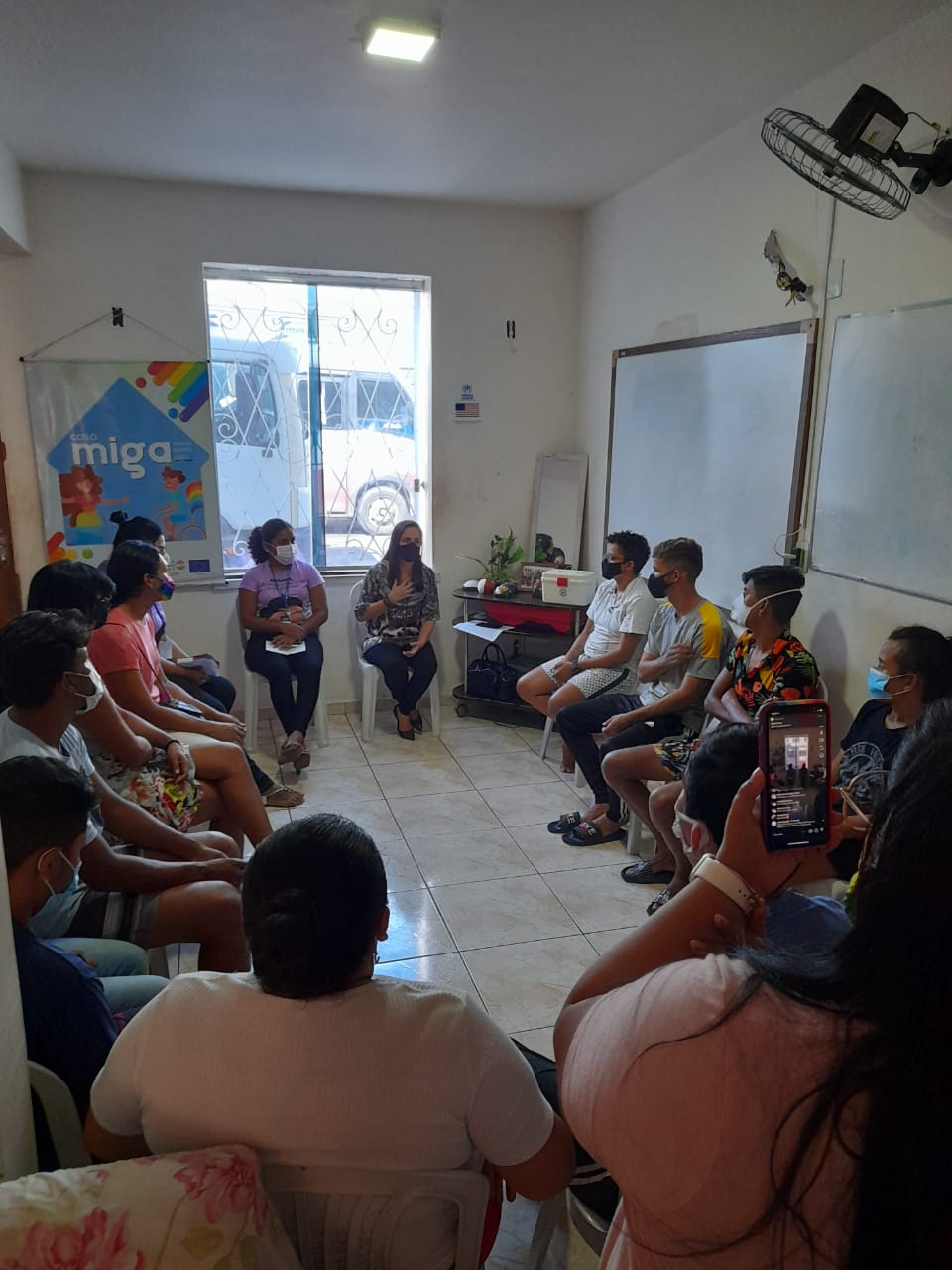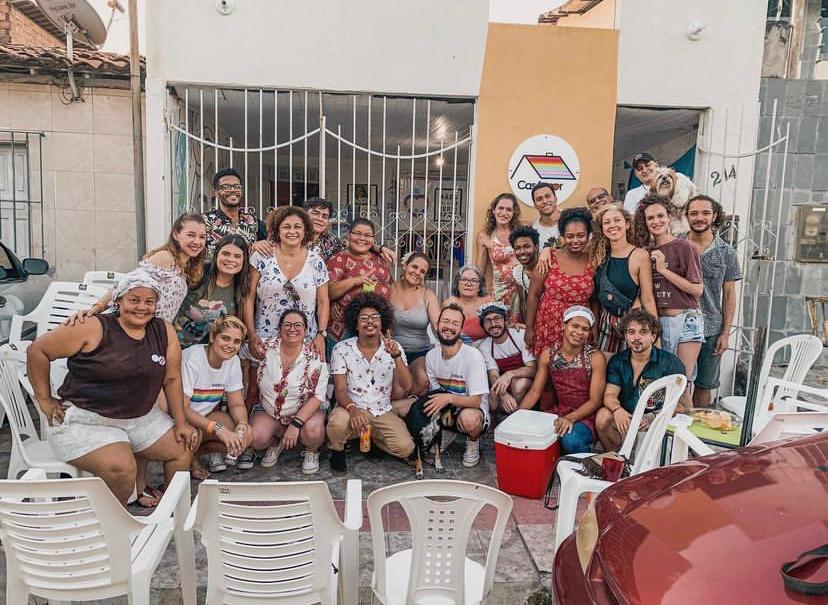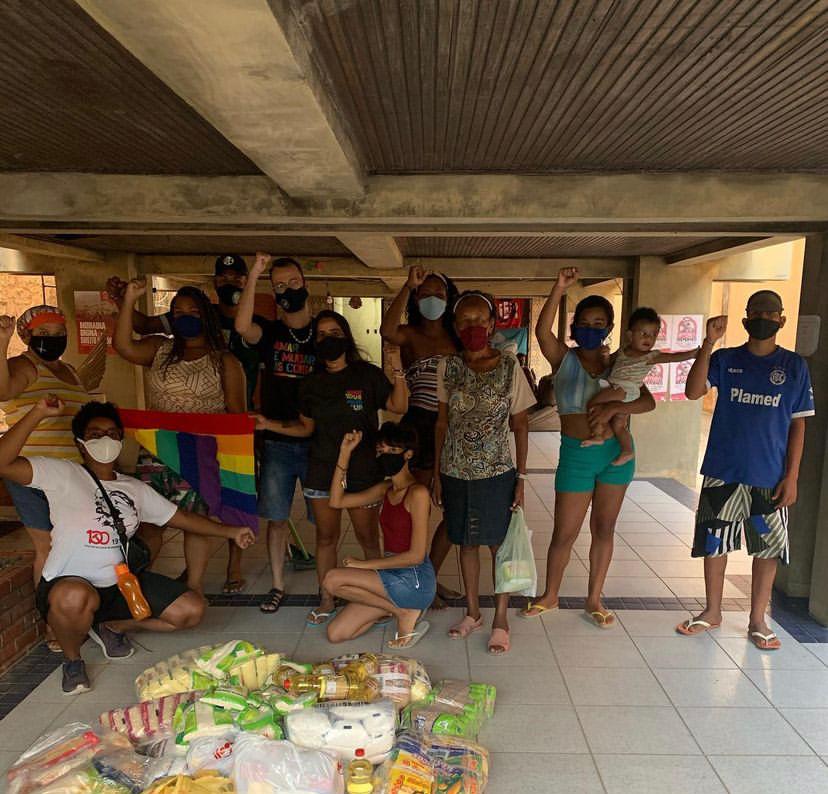LGBTQIA+ reception in the North and Northeast regions of Brazil
Care is often done without physical presence, but with closeness and affection.


Credit: Disclosure
By: Eduarda Nunes / Lupa do Bem – Favela em Pauta
Some taboos on sexualities cross generations and force repressed people to organize their lives in an attempt to guarantee as much protection as possible. When homosexuality was considered illegal and liable to arrest in the United States, some bars and clubs were the only places where people could express themselves freely, a kind of refuge.
The Stonewall Inn was one of these, and on June 28, 1969, it was the target of an aggressive police operation that took thirteen people into custody. This action caused a reaction that lasted five days of mobilization led by Marsha P. Johnson and Sylvia Rivera, black and Latina transvestites, who felt the situation a trigger to stand up against the frequent persecution for being who they are.
This was an important milestone for the beginning of the LGBTQIA+ civil rights movement. Even today men, women and non-binary people face a society that insists on demonizing and criminalizing their existence. In Brazil, a close example was on August 19, 1983, at the demonstration held at Ferro’s Bar, in the city of São Paulo, which became known as the Little Brazilian Stonewall. The date, since 2008, also marks the Lesbian Pride Day, after approval by the Legislative Assembly of the State of São Paulo.
To make this confrontation, all support and support is important. Brazil is the first country in the Americas in the ranking of homicides of LGBTQIA+ people and the first in the world for the murder of trans people, according to a report by the International Lesbian, Gay, Bisexual, Transgender and Intersex Association (ILGA). In the pandemic, the situation of social vulnerability of LGBTQIA+ people became even greater: health and food insecurity and family friction are some of the factors that most implicated this.
In this context, organizations such as CasAmor Neide Silva (SE) and Casa Miga (AM) are of paramount importance to help the LGBTQIA+ community through this difficult time.

Casa Miga, for example, is the first shelter for Brazilian LGBTQIA+ people and refugees in Brazil. It is located in Manaus and was created in 2018 as a project of Associação Manifesta LGBT+ and is now a reference throughout Latin America. At the beginning of the pandemic, there was a drop in donations and the house was almost closed, but with a lot of work and persistence, the team keeps the institution open to this day.
Since May 2020, around 500 people have benefited from food donations and other activities that Casa offers. They work by offering housing, food, individual and group psychological care, professional courses and guidance on health services for Brazilians, Venezuelans and Cubans.
Lucas Brito, 25 years old, is the general coordinator of Casa Miga. He says that many times, due to the clash of cultures, it’s necessary to prepare moments of discussions to achieve a certain “alignment” with people. Although they are all LGBTQIA+, sometimes there are cases of transphobia among the beneficiaries. Lucas’ future expectation is that there will be “the realization of the rights already achieved and the construction of new policies that reach subjectivities that are not yet achieved”.


CasAmor and legal, cultural and mental health support in Aracaju, Sergipe
This is the same wish of Eron Pereira Neto, president of CasAmor Neide Silva in Aracaju (SE). It is because of the political underrepresentation of actors who can fight for the most basic and fundamental rights of the LGBTQIA+ population that these initiatives become even more important.
In Sergipe, CasAmor needed to change the format of action due to the pandemic. The work fronts in legal advice, social assistance, cultural center and mental health needed to give space so that a task force to combat food insecurity could be formed. CasAmor also works with the LGBTQIA+ members of the Homeless Workers Movement (MTST), personally assisting the members and also holding some moments of discussion on the occupations.


“During the pandemic, we lost a lot of direct contact with our audience, the affective, welcoming contact, which we know is very important for the people we watch”, says Eron, who is also one of the founders of CasAmor. Contrary to this loss, donations have increased and today they can assist more people than before, either through food donations or through virtual consultations. Currently, more than 100 people are assisted, even if from afar by the institution.
These initiatives must be increasingly multiplied throughout Brazil. Fighting LGBTQIA+phobia is ensuring a country that understands, respects, and values every living person.




